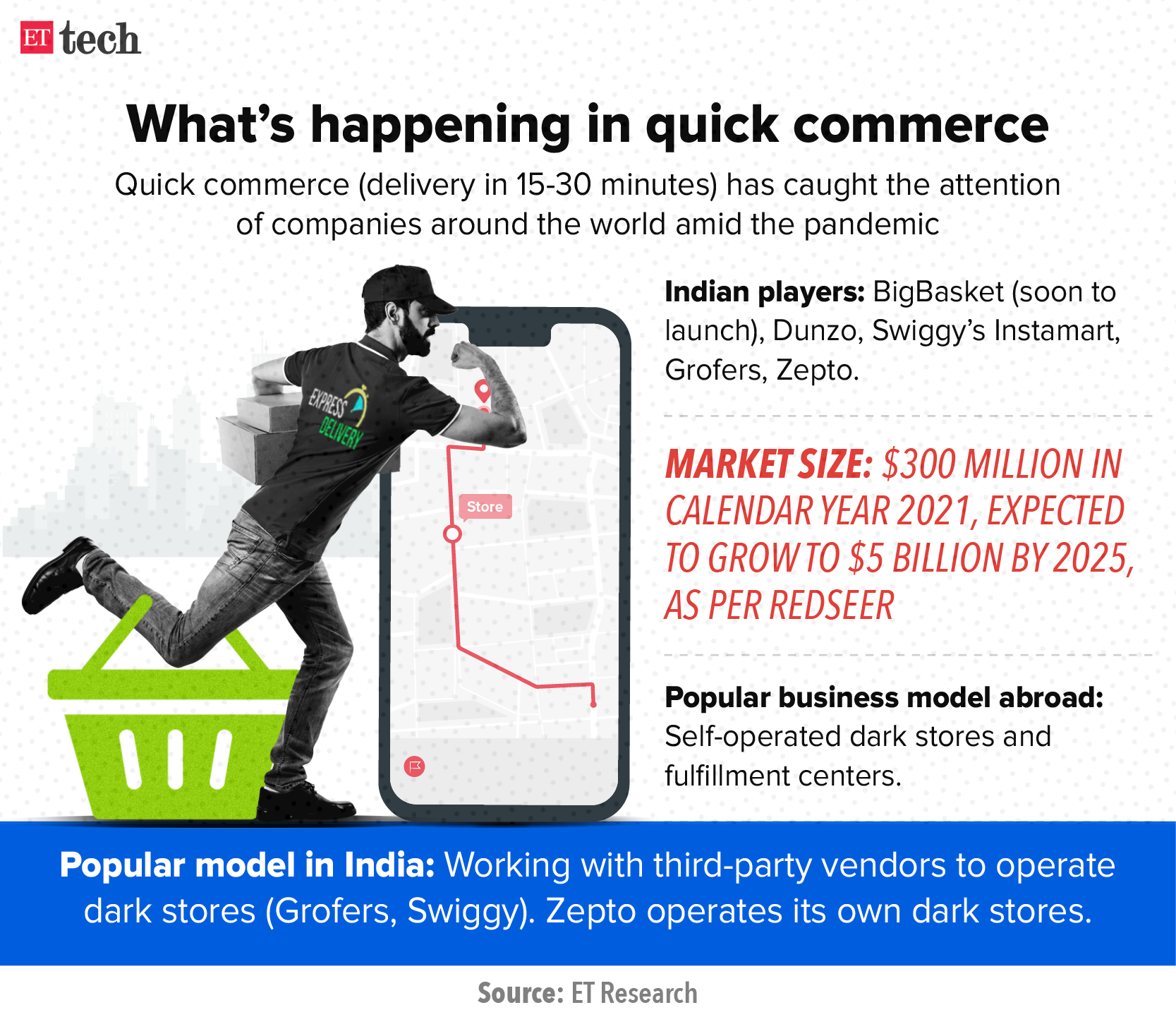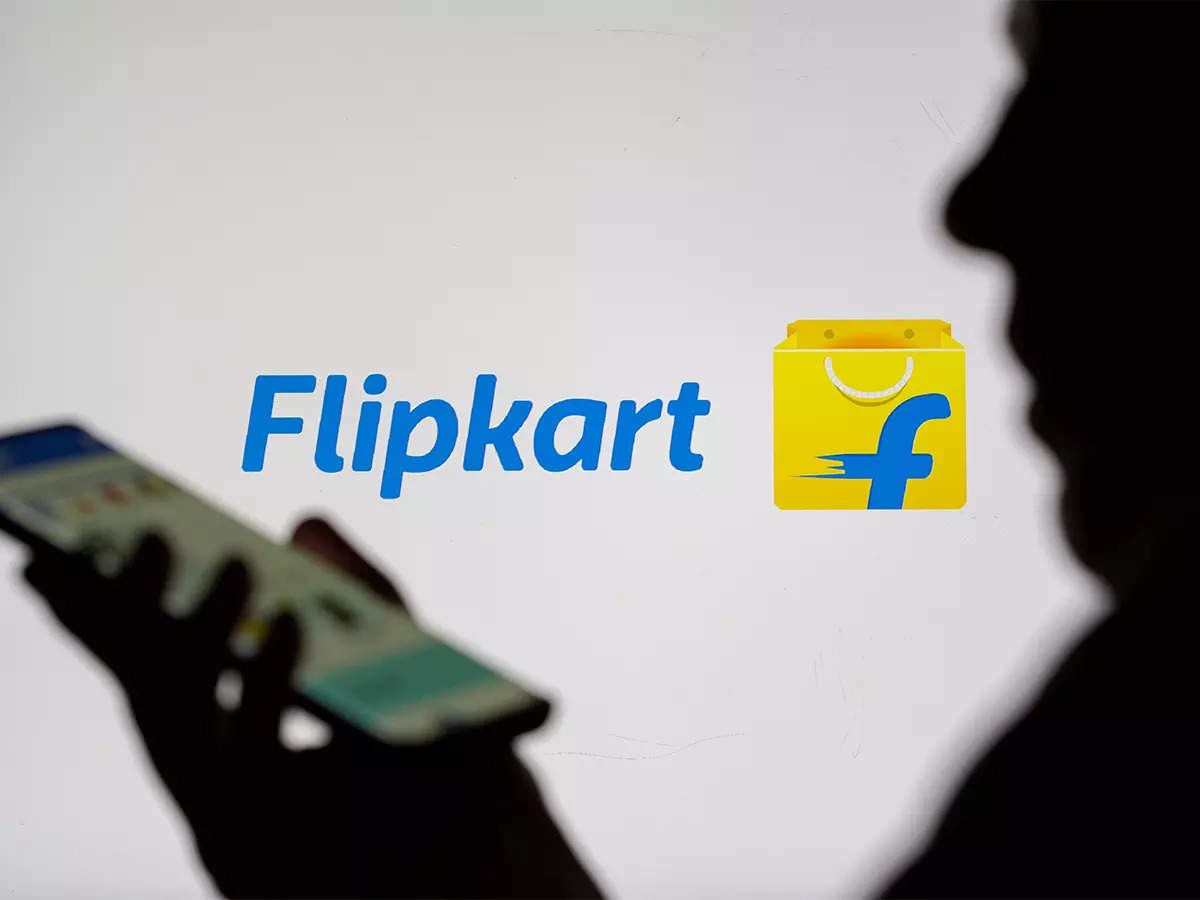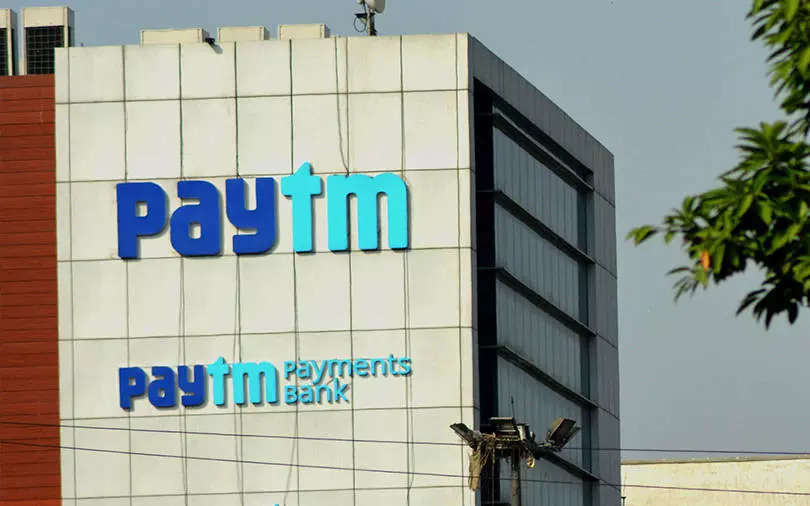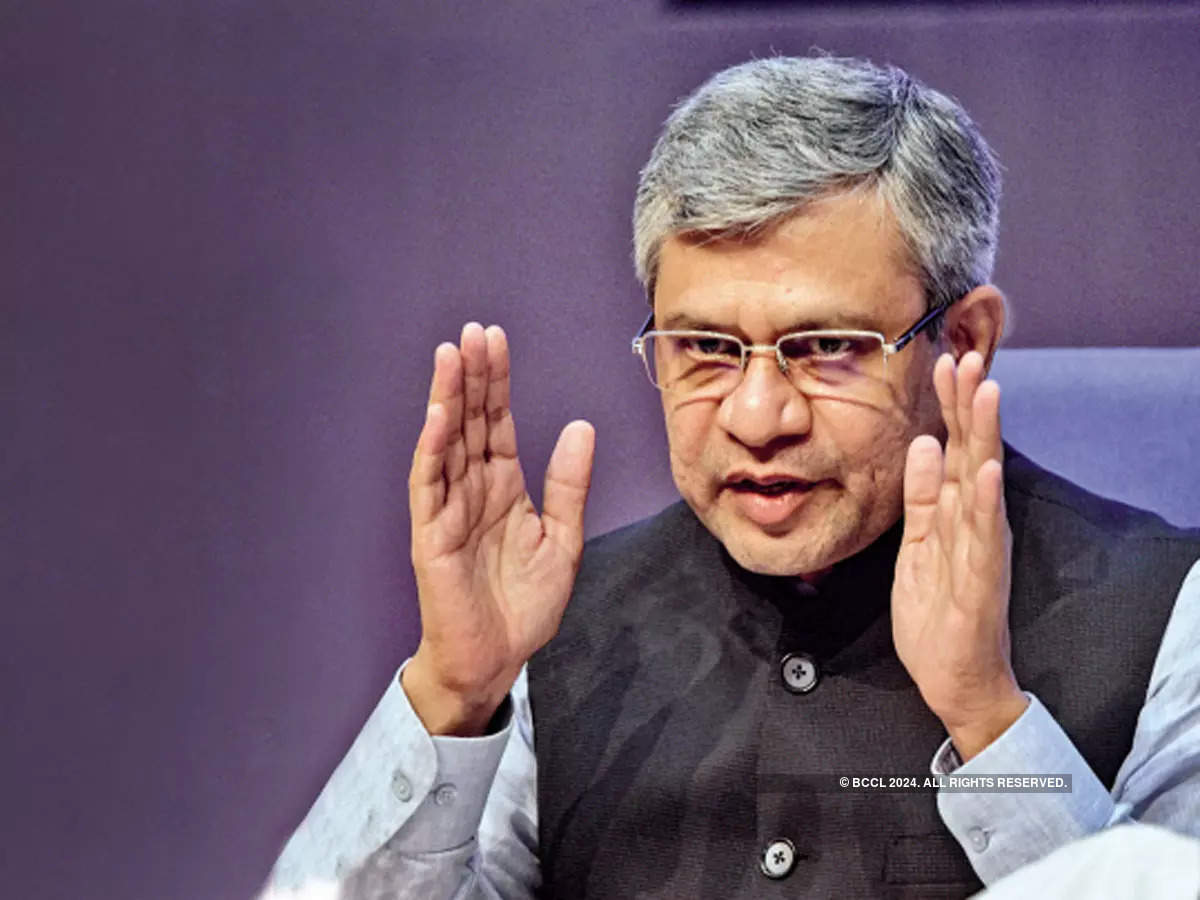Also in this letter:
- Complex tax system forces Indian startups to shift abroad: report
- It’s official: Flipkart, Walmart to invest $145 million in Ninjacart
- Paytm GMV more than doubles to Rs 1.66 lakh crore in Oct-Nov
Grofers changes name to Blinkit as it shifts focus to quick commerce

Blinkit cofounder Albinder Dhindsa
Online grocery startup Grofers has changed its name to Blinkit.
Why? The rebranding, like that of Facebook in late October, reflects a change of focus for the company as it looks to grab a share of India’s rapidly growing quick commerce market. It comes months after the company launched grocery deliveries in 10 minutes or less. Blinkit now claims it processes a million such orders across 12 cities every week.
- Facebook had similarly rebranded itself Meta Platforms Inc. to reflect its growing focus on the metaverse.
‘A new company’: “All our learnings, our team, and our infrastructure are being repurposed to pivot to something with staggering product-market fit — quick commerce,” the company wrote in a blog post on Monday. “Today, we are surging ahead as a new company, and we have a new mission statement — ‘instant commerce indistinguishable from magic’. And we will no longer be doing this as Grofers — we will be doing it as Blinkit.”
Deepinder Goyal, co-founder and chief executive of Zomato, welcomed the move with a tweet. We reported last month that his company was said to be in talks to invest $500 million in the online grocery platform after having co-led a $120-million funding round in June, which made Grofers a unicorn.
India’s quick commerce boom: According to a report by Redseer, India’s quick commerce market will be worth an estimated $300 million this calendar year and grow to $5 billion by 2025. Grofers competes with companies such as Google-backed Dunzo, Swiggy’s Instamart and Mumbai-based Zepto in the space.

- Flipkart and its parent company Walmart confirmed they were investing $145 million into fresh produce supply chain startup Ninjacart to boost their quick commerce play. More on this below.
- In early December, we reported that Swiggy plans to invest $700 million in Instamart. The company said it was clocking more than a million grocery orders a week, with 150 dark stores across 18 cities. It planned to add 100 more of these so-called dark stores over the next few months.
- In late November, Tata-owned BigBasket said it would launch its express grocery delivery service BB Now in December. CEO Hari Menon told us that the company would also bring all its grocery offerings onto its main BigBasket app, which is being referred to internally as the ‘BB Super App’.
- Grofers, which is likely to receive $500 million from Zomato, operates a network of 200 dark stores to which it plans to add another 100, the company had announced in a blog post in November.
- Zepto, a pure-play quick commerce platform that recently raised $60 million, is targeting 100 dark stores by the end of the year.
Complex tax system forcing many Indian startups to shift abroad: report

Many Indian startups have shifted abroad because of the country’s complex and unfriendly capital gains tax system, according to a report on direct tax administration by the Bangalore Chamber of Industry & Commerce (BCIC).
Who wrote it: The report was authored by BCIC president KR Sekar and his colleagues at Deloitte Priya Narayanan and Chandrashekara Acharya, who wrote on ways to prevent disputes and improve faceless assessment, and by Aarin Capital Partners chairman TV Mohandas Pai and tax consultant S Krishnan, who wrote on way to improve India’s capital gains tax regime.
What it said: Pai wrote in the foreword that India has “a perverse tax system that penalises investing in unlisted companies with a higher long term capital gains tax for taking greater risks and creating more jobs”.
He wrote, “India has seen seminal reforms in capital markets over the last decade. Our secondary markets are in the top three on trading volume, regulations, liquidity and risk management. The big challenge is to improve access to capital for our innovators and startups. Only 10% of capital invested in start-ups between 2014 and 2020 is from India.”
He said there was an urgent need to reform “the entire gamut of capital gains tax on securities and real assets” to simplify the tax regime, ensure uniformity across asset classes, improve compliance, and reduce litigation. Reforming the capital gains tax “would enable investors to invest in various assets after considering the risk and return rather than tax consequences”, he added.
“Disturbing trend”: Meanwhile, Zerodha cofounder Nikhil Kamath tweeted on the issue on Sunday night, saying the trend of new startups building for India but incorporating outside India was “disturbing”.
“While even now startups are largely funded by foreign VCs, there is wealth creation in India through founders, angels, & Esops. Also, the taxes on realised capital gains benefit India. Since most startups now prioritise growth over profits, there’s typically no income tax in India. Now if all wealth creation and capital gains are also captured outside, it is like that dialogue from Swades: ‘Apni chaukhat ka diya, giving light to neighbour’s house’.”
And on Monday morning, Biocon founder and executive chairperson Kiran Mazumdar-Shaw tweeted a photograph of this report in ET’s print edition with the message: “U couldn’t agree more.”
It’s official: Flipkart, Walmart to invest $145 million in Ninjacart

Flipkart and its parent company Walmart said on Monday they were investing $145 million in fresh produce supply chain startup Ninjacart. This is the third time Flipkart is investing in Ninjacart and marks the largest agritech deal in the country, the company said.
ET was the first to report on Dec. 13 that Flipkart was in advanced talks to invest in Ninjacart at a valuation of $750-800 million. The deal comes at a time when Flipkart is scaling its 90-minute online grocery business — Flipkart Quick — to 200 cities by the end of 2022.
“With this investment, we are further able to strengthen our grocery footprint and offering as consumers across the country throng to e-grocery for quality and affordable options in the fresh category,” Flipkart CEO Kalyan Krishnamurthy said.
“The funds will enable us to dream beyond organising the farmer-to-retailer ecosystem to a much larger goal of organizing the complete agri ecosystem and enabling transparent commerce,” said Thirukumaran Nagarajan, cofounder and CEO of Ninjacart.
Other Done Deals
■ Dialysis chain NephroPlushas raised Rs 182 crore in a Series E funding round led by IIFL Asset Management that also included existing investors InvestCorp and Bessemer Venture Partners. It will use the money to pursue growth opportunities across India and select international markets.
■ Anur Cloud Technologies, a cloud-based customer identity verification solution provider, has raised an undisclosed sum in a seed round from AIG Direct. It plans to use the money to further expand its overseas presence and strengthen its capabilities in India.
Tweet of the day
Paytm GMV more than doubles to Rs 1.66 lakh crore in Oct-Nov

Paytm’s parent firm One97 Communications said that its gross merchandise value (GMV) grew more than 2x year-on-year to about Rs 166,000 crore in the first two months of the third quarter of the current fiscal.
It had clocked GMV of Rs 72,800 crore in the corresponding period a year ago. The company said the increase was driven by a sharp rise in loan disbursals.
What’s GMV? Paytm defines GMV as the value of total payments made to merchants via its app, through Paytm payment instruments, or through its payment solutions, over a given period. It excludes any consumer-to-consumer payment services such as money transfers.
What else? The number of loans disbursed increased over 4x to 27 lakh during the reported period, from 5.30 lakh a year ago.
The value of loans disbursed increased by 375% to Rs 13,200 crore in the first two months of the quarter, from Rs 280 crore in the same period last year.
Paytm also posted 36% growth in monthly transacting users (MTUs) to 6.32 crore during the reported period, from over 4.66 crore average MTUs in the same period last year.
Need a new world order on regulating internet, says IT minister

Union IT minister Ashwini Vaishnaw
The United Nations marked a new global order after World War II, and a similar effort is needed to govern the Internet and emerging technologies such as artificial intelligence, Ashwini Vaishnaw, union minister for IT, telecom and railways, said on Monday.
What he said: Speaking at the Partnership Summit 2021 of the Confederation of Indian Industry (CII), Vaishnaw said that currently entire industries are being disrupted by technology and rising geopolitical tensions are being fed by technology disruptions.
“Technology is all pervasive. It doesn’t understand boundaries. The impact of social media platforms, big tech, artificial intelligence, it’s still unknown,” he said, adding that policymakers and his counterparts in countries such as Europe and US, Japan, South Korea and Australia are all grappling with the questions relating to data privacy, safety of citizens and fake news.
He said that there are also questions about whether people who create content are paid fairly, and whether increased connectivity is making society more polarised.
Today’s ETtech Top 5 newsletter was curated by Zaheer Merchant in Mumbai. Graphics and illustrations by Rahul Awasthi.
























